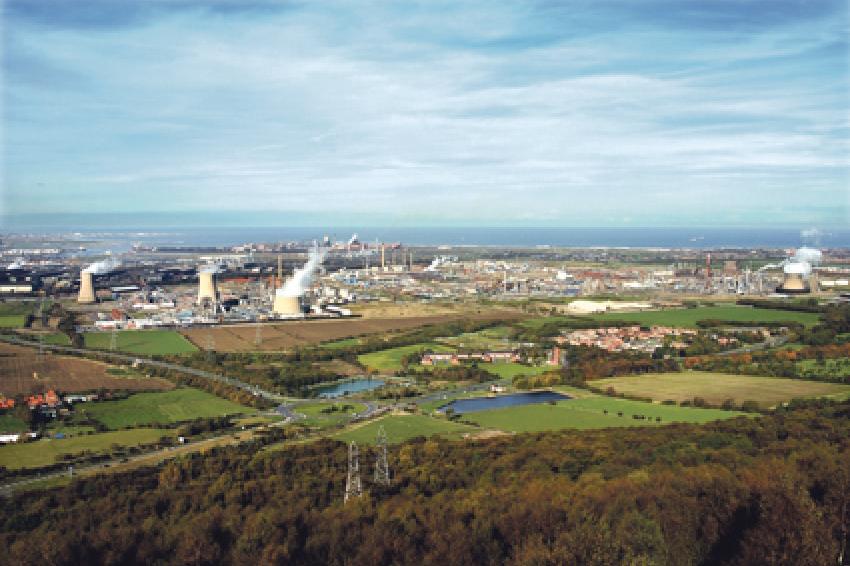The Chemicals and Pharmaceuticals Industry in Great Britain
Newly forged links between academia and industry make the UK’s chemicals clusters centers of innovation
Business in Great Britain - Since 2008, the UK chemical industry has gone through one of the biggest downturns in production of all the world's leading producers of chemicals. Now it faces the challenge of finding ways of returning to a steady growth in output, so that it can make up for the ground it has lost over the past four years.
From 2008-2010, turnover in chemicals in the UK fell by 14%, from £42 billion (€52 billion, $66 billion) to £36 billion, according to figures from the country's Office of National Statistics (ONS).
The decrease was particularly steep in commodities, which accounts for around 40% of the UK chemical industry‘s turnover. In basic organic chemicals, mainly petrochemicals, turnover plunged by 31%. Specialities and consumer chemicals, which evenly share the remaining 60% of the industry's turnover, fared better, with perfume and toiletry producers seeing their turnover rise by 14%.
By the end of 2010, the ONS production index for chemicals in the UK showed that output in constant prices taking into account inflation was 20% below the average level in 2008. During 2011, the decline levelled out before production started to rise slightly, so that by the spring of this year the gap was less than 14%.
However, despite the small improvement in production in recent months, the country's post-2008 performance is still trailing well behind that of other major producers. Two other poor performers have been the US and Italy, but the decline in their output for 2008-2011 has been half that of the UK, according to figures from the American Chemistry Council (ACC), which tracks trends in global chemicals production.
UK and Europe
In Europe, other big chemical-producing countries suffered drops in output in 2009, but their chemical output subsequently recovered much more quickly. Last year, output in all the leading national chemical industries in Western Europe increased, except the UK (with a fall of 3.9%) and Italy (with a fall of 2.4%), says the economic forecasting consultancy Oxford Economics.
Prior to the financial crisis, UK chemicals output had been increasing relatively consistently, with production in early 2008 around 15% higher in real terms than it was in the late 1990s.
However, much of the growth had been driven by buoyant sales in commodities. Specialities, by contrast, did worse than expected mainly because of competition from low-priced Asian exports in segments like fine chemicals.
The UK chemical industry was also helped by a flourishing UK pharmaceuticals sector, dominated by GlaxoSmithKline and AstraZeneca, which is one of its biggest customers. By mid-2007, pharmaceuticals output was over 30% higher than seven years previously.
Investing in the Future
Nonetheless while enjoying growth in production and sales, much of the UK chemical industry, particularly its commodities segment, failed to raise capital investment. In basic chemicals, annual capital investment levels were around 30% lower than they were at the turn of the century.
As a result, when the recession struck a lot of elderly chemicals plants in the UK that needed upgrading were among the first to be closed. Typical of the closures was a decision by Dow Chemical in 2009 to shut down a 320,000 tons-a-year ethylene oxide unit and a 275,000 tons-a-year ethylene glycol unit at Wilton, Teesside, triggering capacity cutbacks by their surfactant-making customers.
"These plants closures were one reason why the commodities sector, particularly petrochemical producers, has not been able to recover quickly from the effects of the recession," explains Alan Eastwood, senior economist at the UK Chemical Industries Association (CIA). "Petrochemicals output is still around 30% below what it was in 2008."
UK pharmaceuticals production has also dived over the past two years, mainly as a result of cuts in health budgets by governments as part of their post-2008 austerity programmes. Some observers reckon that the pressures in the pharmaceuticals market, particularly in Europe, were a major reason why the bounce-back by the UK chemicals industry has been delayed.
"The UK industry contracted for a further two years after 2009 largely because of the weakness of the pharmaceutical sector which carries a large weight in terms of chemical output as a whole," says Amit Sharda, chemicals analyst at Oxford Economics.
The plight of the UK chemicals sector was highlighted in April when its exports and imports balance showed a deficit of around £300 million, raising the prospect of losing its long-established annual trade surplus. "We have [had] one or two months before when there has been a deficit of a few tens of million but not of this size, which is really quite serious," says Eastwood.
In fact, even before the recession, the industry's trade surplus had been gradually declining: from around £3 billion 10 years ago to £1 billion in 2008. By last year, the surplus had shrunk to only £37 million.
The shrinking of the trade surplus has coincided with changes in the industry's structure. There are fewer chemical producers, with numbers of chemical and man-made fibre companies falling by about 40% to around 2,500 between the mid-1990s and 2010. There are fewer large UK-owned players: ICI , the biggest since the 1920s, was broken up and finally disappeared four years ago when it was taken over by AkzoNobel. Now 70% of the membership of the CIA, which represents the country's larger producers, are foreign-based multinationals.
Over the past two years, the UK chemicals sector has also been hit by problems in the Eurozone, which it is by far its biggest export market. On the other hand, with the UK being a non-euro country, it has been less affected by the crisis than its Eurozone counterparts.
Outlook
Analysts have been predicting that the UK chemical industry will start to recover this year with output increasing slightly, while production in Germany, France, Italy and Spain - all Eurozone members - will stagnate or decrease because of the euro crisis.
Then UK chemicals output should start to rise faster than GDP. Oxford Economics reckons that from 2012 to 2021, UK chemicals output will rise by an average 1.6% annually - about the same rate as in Germany and only slightly below the average in Western Europe.
UK growth is likely to come from a revived specialities segment, centred on the northwest of England, which has the biggest chemicals cluster in the UK. It has the highest number of new chemical companies in the country, many of them spin-offs from the area's universities, such as Manchester and Liverpool.
While the country's traditional petrochemicals-based sector - centred on Teesside, the UK's other major chemicals cluster - is likely to continue to decline, it should be replaced by projects based on low-carbon technologies using renewable and hydrogen feedstocks.
R&D investments, some coming from government funds, will stimulate growth in new high-end sectors such as printed electronic materials, battery chemicals for electric vehicles and chemicals for biotechnology processes.
These innovative segments, galvanised by the country's strengths in university education and research, should provide a platform for long-term growth.
The UK still has a highly developed industrial infrastructure, especially in and around its main chemicals clusters in the northwest and northeast of England. These are becoming centers of innovation based on newly forged links between academia and industry. New technological platforms are being built with the help of some of the world's leading universities. The country has highly qualified personnel in the upper tiers of chemistry and chemical engineering. But like elsewhere in Western Europe it is hampered by shortages further down the skills ladder.
In the short to medium term, the country will have to be satisfied with a slow expansion in production to make up for the effects of the 2008 crisis. "Despite a gradual rise in output, we expect chemical output will only just reach its pre-2008 peak by the end of this decade," says Sharda.






